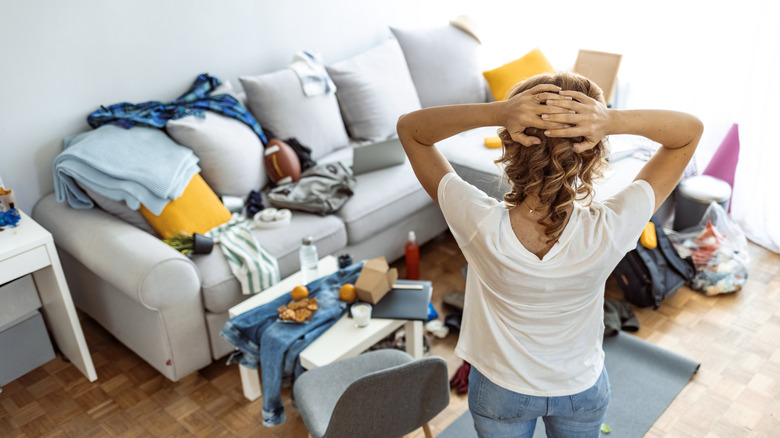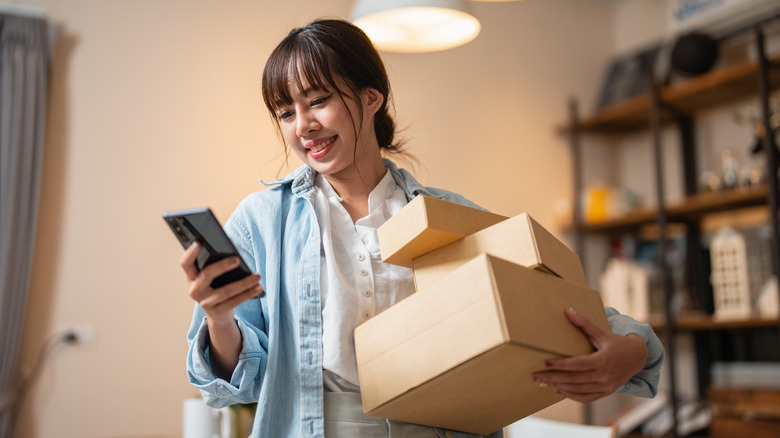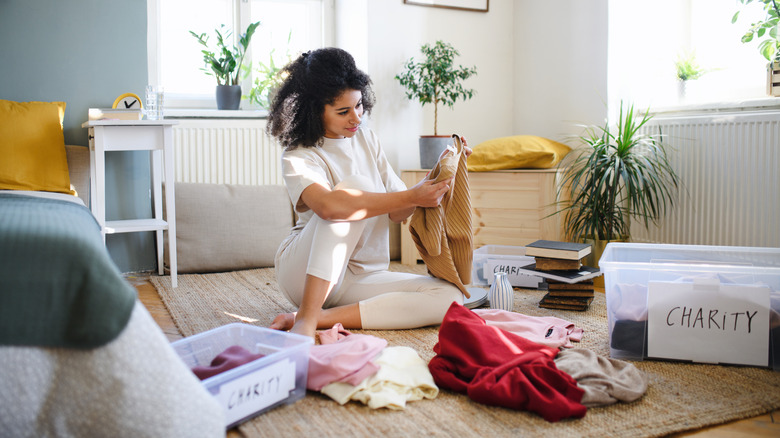What Is 'Clutter Creep' & How Can You Avoid It?
Clutter creep. Like the proverbial middle-age spread, it sneaks up on you — quietly and gradually — until one day, you look around and wonder how the heck your reasonably tidy home became so chaotic. Unlike an obvious mess, clutter creep isn't dramatic. It's the subtle buildup of items over time: a drawer that no longer closes without a good shove, surfaces that would have made a minimalist proud now buried under paper, or shelves bending beneath the weight of dusty knick-knacks from who knows where. You could be dealing with clutter creep if you're constantly reorganizing or buying more storage bins only to still feel stressed by the amount of items around you.
This slow accumulation often stems from well-meaning intentions. You bring home a new vase, a trendy kitchen gadget, or another tote bag from a work event. None of it feels like clutter at the time, but over weeks and months, these items start to add up. The result? A home that feels heavier, harder to manage, and further from the calm, clutter-free space you'd love to relax in.
Clutter creep is especially sneaky because it doesn't feel urgent ... until it does. Over time, this low-grade visual noise can weigh on your mental well-being. Visual clutter increases stress and reduces focus, making it harder to relax and feel at ease in your own home. Understanding what clutter creep is (and being able to notice when it's happening) is the first step toward avoiding it taking over your space.
How clutter creep happens
Clutter creep thrives in the background of everyday life. It doesn't show up in one giant avalanche; it builds slowly while you're busy doing other things. You might toss mail on the table to read later, leave a recently emptied shopping bag by the door, or keep duplicates of items just in case. Eventually, these little decisions compound into visible clutter that even the worst case of clutter blindness can't unsee.
Often, clutter creep happens because we're not being intentional. Without designated spots for frequently used items — or regular check-ins on what we actually use — our homes become magnets for excess. This includes floating items that serve a purpose but never seem to land in the right place or have their own home, like seasonal decor, hobby supplies, or workout gear.
Even digital convenience contributes to slowly accumulating clutter. With the ease of online shopping, new items can arrive at our doorsteps faster than we can find a place for them. And let's not forget about the stuff we meant to return, donate, or repair but never quite got around to. By recognizing how clutter sneaks in (slowly, and often with our unintentional permission) we can begin to declutter more mindfully and avoid falling back into the same trap.
How to avoid and declutter clutter creep
The best way to avoid clutter creep is by staying one step ahead of it. That doesn't mean you need to declutter every day (although a quick daily declutter session can eliminate little things like stacks of mail and scattered shoes). But it does mean building habits that prevent buildup. Start by giving everything a home. When things don't have a designated place, they tend to become clutter. Practice a "one in, one out" rule: For every new item you bring into your space, let go of something else. Be intentional with what you buy, and don't be afraid to say no to freebies or well-meaning gifts that don't serve you.
Schedule a regular check-in — every month or so — to do a quick sweep of your home. Look for items that no longer serve a purpose, duplicates you could easily do without, or things you've outgrown (physically or otherwise). Taking a soft approach to decluttering is a much easier way to keep your space organized. Plus, it avoids you having to tackle the inevitable full-blown mess. And remember, clutter isn't just about stuff. It's about energy and headspace. When your environment feels calm and organized, you're more likely to feel the same. So be proactive. Set boundaries with your belongings. And give yourself permission to own less so you can enjoy your home more.


